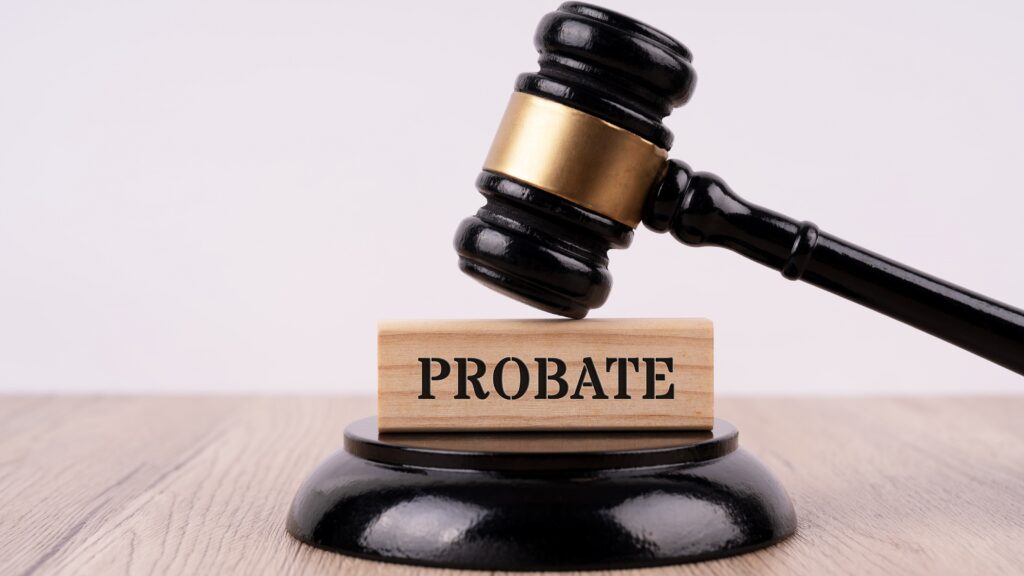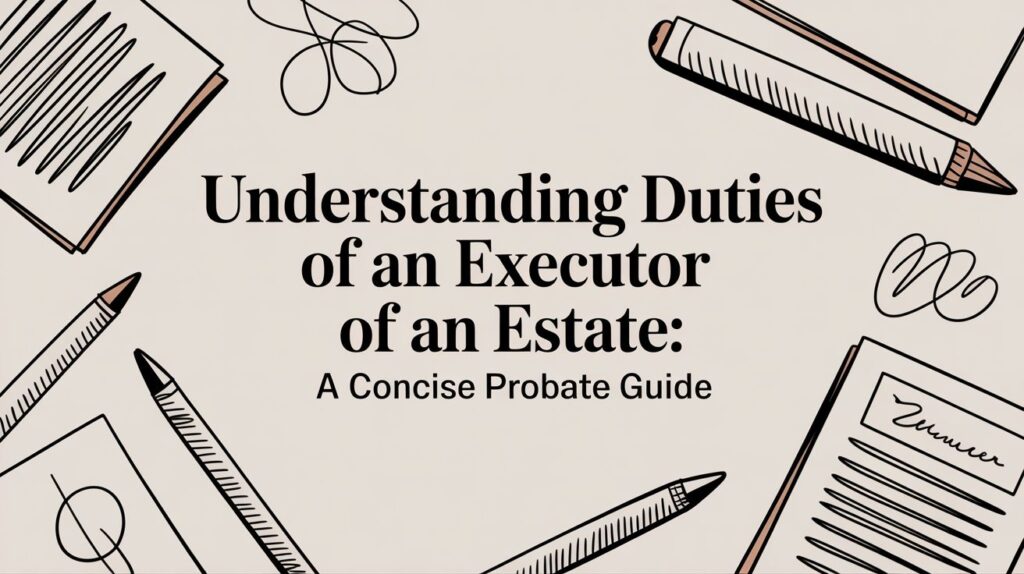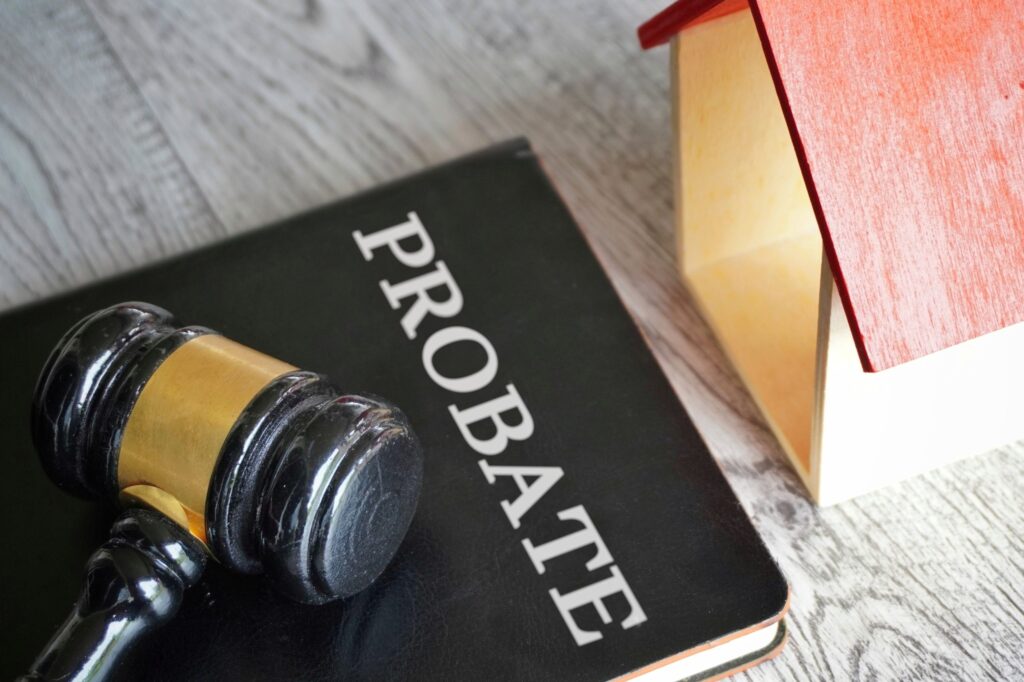Handling real estate during probate can be one of the most critical aspects of estate administration. Properties are tangible assets that need consistent care, and navigating this process in Texas probate comes with unique responsibilities. Executors or administrators often find themselves juggling the duties of estate settlement with the challenge of maintaining and repairing properties under probate. Neglecting a property could lead to depreciating value, while unnecessary or unauthorized repairs could create legal complications. In this guide, we’ll explore how to handle real estate maintenance and repairs during Texas probate, including practical steps, legal considerations, and common pitfalls to avoid.
Understanding Probate in Texas
Before we dive into real estate maintenance, it’s important to understand the basics of probate in Texas. Probate is the legal process that occurs after someone dies to ensure their will is valid and their assets are distributed according to their wishes or, if there’s no will, according to Texas law.
During probate, an executor or administrator is appointed to manage the estate, which includes handling real estate. This individual has a fiduciary responsibility to preserve the value of the estate, meaning they must act in the best interest of the heirs or beneficiaries. In Texas, probate proceedings can be either independent or dependent. Independent probate is less court-supervised, giving the executor more freedom, while dependent probate requires more court involvement.

Responsibility for Real Estate During Probate
When real estate is part of a probate estate in Texas, the executor or administrator is responsible for preserving the property’s value until it can be distributed to heirs or sold. This involves maintaining the property, making necessary repairs, and ensuring the real estate is kept in good condition.
In most cases, Texas probate courts expect that the real estate will be preserved but not significantly altered during the probate process. That means no major renovations or changes unless they are necessary to protect the property from damage or to comply with local laws.
Securing the Property
The first step in managing real estate during probate is to secure the property. This includes:
- Changing the locks: If the decedent lived alone, the executor should consider changing the locks to prevent unauthorized access.
- Turning off utilities (if necessary): Depending on the situation, turning off non-essential utilities such as water, electricity, or gas may be a good idea to prevent unnecessary expenses.
- Monitoring the property: Whether by visiting regularly or hiring a property management company, it’s crucial to ensure the property is secure and any issues are dealt with promptly.
Insurance and Liability
Real estate under probate must be insured to protect against risks such as fire, theft, and liability. As the executor or administrator, your first step is to ensure the homeowner’s insurance is current. Notify the insurance company of the owner’s death and that the property is now part of the estate. You may need to change the policy to reflect that it is now an estate asset rather than a personal property.
In addition to regular homeowner’s insurance, consider obtaining liability insurance to cover potential accidents that could occur on the property while it is under probate. If the property is left vacant for long periods, vacant home insurance might be necessary, as many homeowner’s policies do not cover unoccupied homes for extended periods.

Maintenance During Probate
The executor is responsible for maintaining the property during probate, but it’s essential to distinguish between routine maintenance and repairs that are necessary to preserve the estate’s value.
Routine Maintenance
Routine maintenance includes tasks necessary to keep the property in good condition, such as:
- Lawn care and landscaping: Grass should be mowed regularly, and bushes trimmed to maintain curb appeal.
- Cleaning: If the property is to be shown to potential buyers or appraisers, keeping the interior clean is important.
- Pest control: Preventing pest infestations is critical to preserving the property’s value.
- Ensuring weatherproofing: Check windows, doors, and roofs for leaks or drafts. Small steps can prevent expensive damage over time.
These activities are necessary to maintain the condition of the real estate and prevent it from deteriorating while probate proceedings are underway.
Emergency Repairs
There are times when repairs go beyond routine maintenance. The Texas probate court allows for emergency repairs when the property’s condition could decline significantly without them. Examples include:
- Fixing a leaking roof
- Repairing burst pipes or broken water heaters
- Addressing foundation issues
- Electrical repairs to prevent fire hazards
In these cases, the executor is generally expected to act quickly to prevent further damage. Any repair expenses must be documented and approved by the probate court if the executor operates under a dependent administration.
Funding Maintenance and Repairs
One challenge that executors often face is how to pay for real estate maintenance and repairs during probate. While the estate is responsible for these costs, access to estate funds may not be immediate. Here’s how to approach this issue:
Accessing Estate Funds
If the estate has liquid assets (such as bank accounts), the executor may use those funds to pay for maintenance and repairs. However, if the probate court is heavily involved (as in dependent administration), the executor will need to obtain court approval before accessing the funds.
Personal Funds
In some cases, executors may have to cover initial maintenance or repair costs using their own funds, especially if immediate action is required to protect the property. However, it’s important to keep detailed records of these expenses, as they can usually be reimbursed from the estate later on, once funds become available.
Heir Contributions
If there are multiple heirs and the estate is short on funds, the executor may need to ask heirs to contribute to the property’s maintenance temporarily. This can be a tricky situation, as not all heirs may agree to this, especially if they believe the property should be sold quickly.
Selling the Property During Probate
If the decedent’s will or the probate court orders the property to be sold to pay debts or distribute assets, managing maintenance becomes even more critical. A well-maintained property is more likely to attract buyers and sell for a higher price. Some steps to ensure the property is market-ready include:

- Cosmetic Repairs: Minor cosmetic repairs like painting, patching walls, and fixing broken fixtures can improve the property’s appeal.
- Staging: Depending on the estate’s budget, professional staging can help present the property in its best light to prospective buyers.
- Working with a Real Estate Agent: Hiring a real estate agent who understands probate sales can streamline the selling process. These agents are familiar with the additional legal requirements that come with selling probate properties.
Court Approval for Repairs
If the probate is under court supervision, the executor must request court approval before making significant repairs or changes to the property. Even in independent administration, it’s wise to consult with the beneficiaries before authorizing major repairs to avoid conflicts later on.
This approval process can add time to the probate process. However, it’s necessary to protect both the executor and the estate. Failing to get proper approval can result in personal liability for the executor if the repairs are deemed unnecessary or wasteful.
Handling Rental Properties During Probate
If the real estate in question is a rental property, the executor’s responsibilities expand. They will need to:
- Collect rent from tenants
- Address tenant complaints and requests for repairs
- Ensure that the property complies with Texas landlord-tenant laws
- Maintain the property according to the lease agreement
Executors must be careful to keep accurate records of income and expenses associated with the rental property. These will need to be reported to the probate court and included in tax filings.
Key Considerations for Executors
Handling real estate maintenance and repairs during probate requires a clear understanding of your responsibilities and limitations. Here are a few key considerations to keep in mind:
- Fiduciary Duty: As the executor, you must act in the best interest of the estate and beneficiaries. This means that all decisions regarding real estate maintenance and repairs must be reasonable.
- Communication with Heirs: Keep beneficiaries informed about any decisions related to the property. This will help avoid misunderstandings and potential disputes. Transparency is critical, especially when using estate funds for repairs.
- Documentation: Always document any maintenance or repairs you authorize. Keep receipts, invoices, and records of any work done on the property. If court approval is required, make sure you have all the necessary paperwork before proceeding.
Key Takeaways: Real Estate Maintenance and Repairs in Texas ProbateConclusion
Handling real estate maintenance and repairs during Texas probate requires a balance of practical action and legal responsibility. Executors must ensure the property is protected, preserved, and, if necessary, sold in a manner that maximizes its value for the estate. By securing the property, addressing maintenance issues promptly, and communicating with heirs and the probate court, you can navigate this process effectively while minimizing stress and potential conflict. As with many aspects of probate, legal guidance can be invaluable in helping you avoid common pitfalls. With careful planning and attention to detail, real estate in probate can be managed smoothly.








